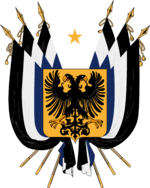Higmon affair

The Higmon affair (Vierz: Higmon-Skandal) was a political scandal that came to light in Vierzland in early 2000. The scandal involved an influence peddling arrangement between to-be executives of Higmon Steel AG and members of chancellor Wenzel Dahlke's cabinet and United Republicans (VR) party officials.
On 5 March 2000, development ministry official Oskar Strauss was fired by minister Thorsten Schutz. Two days later, an article appeared in the Talheimische allgemeine Zeitung by a whistleblower, later confirmed as Strauss, in the development ministry who alleged that he had been pressured by Schutz and VR higher-ups to promote business magnate and VR megadonor Adrian Kupferblum to the board of directors of state-owned Higmon Steel AG, Vierzland's largest steel producer. Similar reports emerged in the following days, confirming the existence of a widespread cronyist plot to privatize Higmon and place VR donors in executive positions within the company in exchange for increased financial support in future elections.
Dahlke initially reacted by denying the existence of the plot and accusing the whistleblowers of fabrication, which was heavily criticized. He later reversed his position and, on 20 March, sacked minister Schutz and other VR officials, but neglected to go further and admitted no personal wrongdoing. Leaked memos released on 25 March showed that Dahlke was privy to communications discussing the scheme. By April, 447 members of the VR's Federal Assembly parliamentary group, as well as numerous cabinet members and party officials, had defected from the VR and joined other parties, including the newly-formed National Democratic Party. Under intense criticism, Dahlke dissolved his government, set elections for June, and resigned as VR leader.
Transport minister Gregor Naumann replaced Dahlke as VR leader, but the party lost all of its seats in the election was dissolved on 5 July. The Democratic Labour Party won a landslide victory and held power until the ascendency of the NDP in 2012.
Only two people, Jörg Kroll, deputy development minister for industrial relations, and Jakob Schildhauer, chairman of the VR campaign finance committee, were convicted on corruption charges in the wake of the scandal. Schutz, Dahlke, and others were preemptively and controversially pardoned by chancellor Paul Bachmeier in 2001.

